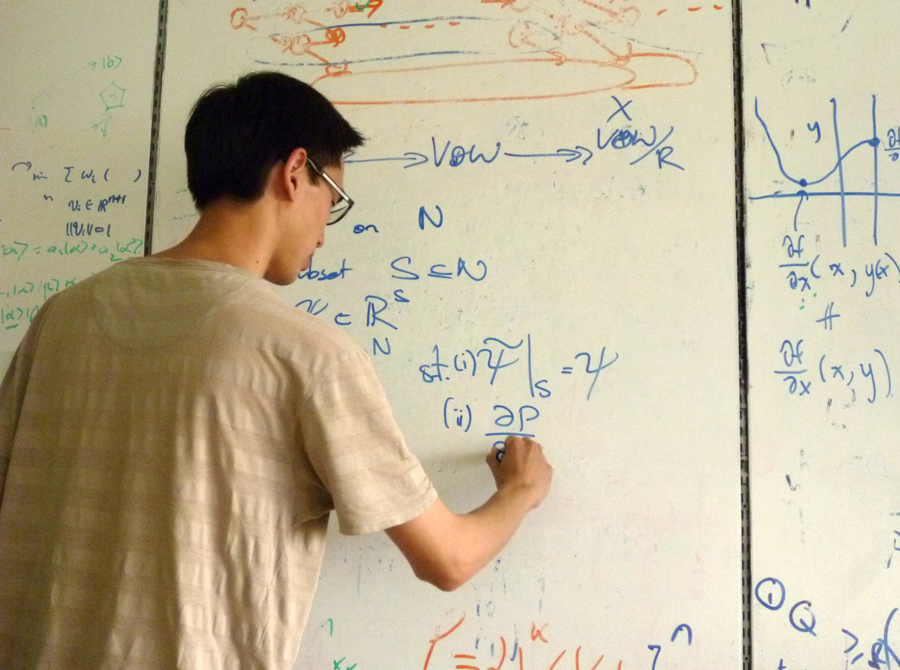The mathematics of language
One of the most important things ANU did for my career was to give me space to enjoy and be fascinated by learning.
ANU graduate Brendan Fong is using mathematics to improve the way we communicate.
About 5000 years ago, the Sumerian society developed ways to record units of oil, sheep and grain on clay tablets that were incredibly important for commerce. But the number they used to write seven jars of oil, for example, was different from the number they used to write seven sheep. In fact, they had numerous different systems like this. Thankfully, such convoluted systems no longer exist.
However, ANU graduate Brendan Fong sees a somewhat analogous problem occurring today in the way people from different disciplines use diagrams to communicate.
“They're all somehow different instances of the same universal language, but we haven't figured out what the general language is, so engineering, biology, chemistry and all these sciences have had to invent their own version of the language. People don’t talk to each other and so they develop the same things in different contexts, like reinventing the wheel.”
Brendan is trying to unify these languages as part of a DPhil (PhD) in Computer Science at Oxford University. Prior to this work, he undertook a Bachelor of Philosophy (Honours)/ Bachelor of Science (Honours) jointly with ANU and the National University of Singapore (NUS).
In practice, his PhD work actually lies between pure and applied mathematics to develop diagrams based on a universal language. “You need to construct things in a way that gives people confidence that reasoning in this language is as rigorous as reasoning with algebra or other methods. The long-term goal of this work is to allow expertise to be easily transferred between structurally similar yet socially disparate disciplines.”
Brendan says his ANU experience has contributed strongly to his achievements in life.
“I suspect one of the most important things ANU did for my career was just to teach me very well, and give me space to enjoy and be fascinated by learning.”

